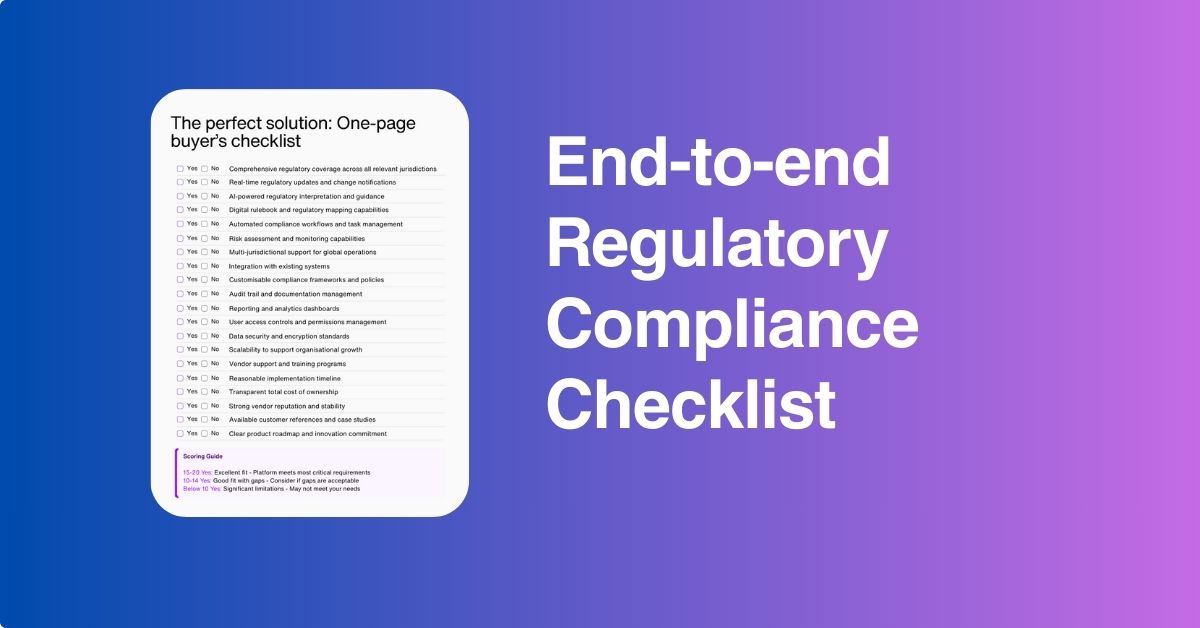Anti-Money Laundering (AML) refers to the policies, laws and regulations that aim to help businesses to prevent illegally obtained funds to move through the financial system.
These funds are typically used to finance illegal activities such as fraud or terrorism financing from being disguised as legitimate commercial activities.
AML is more than just a regulatory requirement, it is an essential for global financial stability, trust, and governance.
Every regulated business, from banks to fintech’s, are required to play a role in detecting money laundering crimes.
How AML compliance shapes a firm’s operations?
AML is not a stand-alone obligation; it impacts how financial institutions function daily from customer onboarding, risk assessments, identity verification to transaction monitoring, and reporting workflows.
But it doesn’t stop with operations. Being compliant with AML rules impacts decisions related to product design, technology, staffing and even during partner selection. Strong controls must be in place to detect suspicious activities and ensure stone is left unturned.
Striking the right balance is important. If there’s too much friction, you could lose customers. If there’s too little oversight, there’s a risk of AML gaps.
An effective AML program is more than just a box-ticking exercise. It’s about integrating compliance into the company’s DNA – every internal process necessary.
Important global AML laws and regulations
Each jurisdiction has its own set of rules to enforce compliance with AML, many of which have common elements:
- The global standard for AML and Counter-Terrorism Financing (CTF), set by Financial Action Task Force (FATF), has 40 recommendations that influences regulators from around the world..
- The Bank Secrecy Act (BSA) in the United States is one of the oldest anti-money laundering laws, enacted in 1970. It mandates financial firms to help US government authorities in detecting and combating money laundering.
- EU Anti-Money Laundering Directives (AMLDs): These directives, now at its sixth version (6AMLD), place significant requirements on beneficial ownership, transaction monitoring, and customer due diligence.
- The UK’s Proceeds of Crime Act (POCA) criminalises dealing with criminal property and requires firms to report on it.as soon as possible, ideally before carrying out any related transactions.
- The AUSTRAC AML/CTF Rules for Australia place a strong emphasis on risk assessments, compliance initiatives, and transaction reporting.
- In Singapore, MAS Notice 626, sets out AML and CTF standards for regulated financial institutions.
Despite the technical differences between these regulations, the regulators from around the world still require record-keeping, real-time risk awareness, and a reaction to regulatory revisions.
What happens if firms don't comply
When businesses fall short of AML expectations, the consequences can be detrimental, sometimes leading to billions of dollars in fines. But that’s not all.
- Businesses that don’t comply may risk losing their licence, limiting their operations or having more scrutiny from the regulators. This could lead to client dissatisfaction and nervous investors when trust is damaged.
- Costs could rise as resources are diverted towards damage control and remediation.
- Staff morale could drop, and talent may leave.
And if you’re in senior leadership, you’re not just watching from the sidelines.
In some cases, compliance, risk or legal officers could be held personally accountable and receive fines, bans or even jail time.
How FinregE could help
FinregE helps organisations keep up and stay ahead of AML compliance.
We track regulatory changes across jurisdictions in real time, organise them clearly, and flag exactly what matters to your business.
Whether it’s FATF guidelines or new laws like 6AMLD, we make sure that your team knows what’s coming on the horizon, what it means, and what to do next. You’ll spend less time looking for updates and more time acting on them.
Book a demo today and see how we empower your firm to stay compliant.




